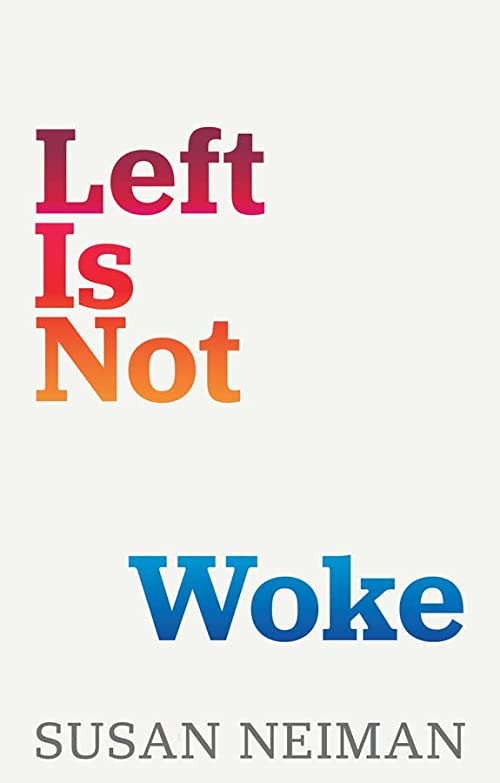
Born in Atlanta, Georgia and currently residing in Germany, Susan Neiman is director of the Einstein Forum and a member of both the American Philosophical Society and the Berlin-Brandenburg Akademie der Wissenschaften. She is also the mother of three grown children. All this is to say that her ability to cut through dense and confounding topics and her chutzpah in stating that “left is not woke” should not surprise us.
This slim volume is divided into five chapters, with generous annotations leading the reader into further avenues of inquiry.
In Chapter 1, Introduction, Neiman expresses the concern that contemporary “leftist” voices “have abandoned the philosophical ideas that are central to any left-wing standpoint: a commitment to universalism over tribalism” necessary to resist the lurch to the right. She also bemoans the weaponization of the term “woke” by the right.
Chapter 2, Universalism and Tribalism, points to the dangers of “diversifying power structures without asking what the power is used for.” The author laments the fact that historical guilt “has led Germans to ignore the voices of Jewish universalists – those of us who cannot shake the intuition that Palestinians, being human, have human rights that should be recognized.” Neiman also opposes the concept of cultural appropriation and goes “a step further: viewing cultural productions as tribal commodities is a way to negate culture’s liberating power.” To prove the universality of culture, she cites Paul Robeson’s political activism, inspired by an encounter with striking Welsh miners singing on a London street.
The focus in Chapter 3, Justice and Power, is primarily on discussing the thoughts of Michel Foucault and Carl Schmitt that led to the belief that history is basically the struggle between “us” and “them.” This section requires a careful reading or perhaps several readings, since many complex issues are covered: imperialism, sexual politics, colonization, idealism, tyranny and so forth.
Chapter 4, Progress and Doom, starts off with a lapidary statement: “It’s not accidental that most of those who would have called themselves leftists a generation ago now call themselves progressives.” The author’s contention is that fear is a factor in this trend. Here Neiman states her belief that while history has traditionally led to progress, it has also suffered from regression. Examples of regression are the re-introduction of torture to Guantanamo by George W. Bush or “the ferocious backlash that has led American school boards to claim that national unity will be threatened if students read Martin Luther King or Toni Morrison.”
In Chapter 5, In Conclusion, Neiman clarifies that this book is philosophical but not only meant for philosophers. She does not deny the importance of analyzing economic inequality or geopolitical transitions but has chosen to focus on ideas. Ideas are important, she argues, because “The woke themselves have been colonized by a row of ideologies that properly belong to the right.” She cites the example of how “changing your pronouns may feel like a radical change, but the vehemence of woke arguments about the importance of pronouns is the expression of people who fear they have little power to change anything else.”
In a Berlin café conversation with Harsh Mander, an Indian author and activist, Neiman expressed regret about the abandonment of three basic principles essential to the left: “commitments to universalism, a hard distinction between justice and power, and the possibility of progress.” Mander added a fourth principle, derived from his Hindu upbringing: “a commitment to doubt.” Neiman entirely agreed and highlighted “the difference between universal leftist movements and the tribal vision of fascism.”